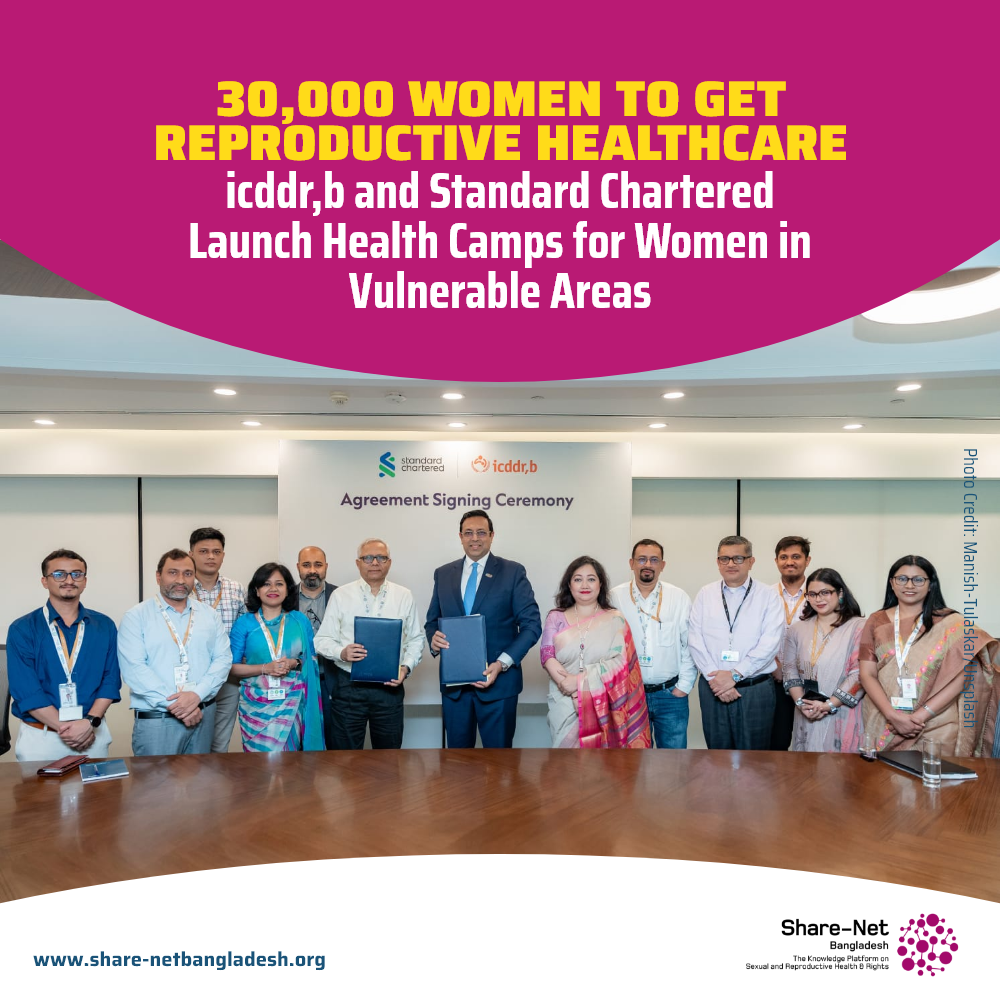30,000 Women to Get Reproductive Health Care: icddr,b and Standard Chartered Launch Health Camps for Women in Vulnerable Areas
icddr,b (International Centre for Diarrhoeal Disease Research, Bangladesh) and Standard Chartered Bank Bangladesh have partnered to bring essential services to 30,000 women and adolescent girls in some of the country’s most hard-to-reach areas. The initiative, launched in 2025, focuses on providing cervical cancer screening, menstrual and maternal health services, and adolescent-friendly care through 100 mobile health camps across six vulnerable zones — Barind, Beel, Char, Coast, Haor, and Hilly regions.
This collaboration directly addresses long-standing challenges in Bangladesh’s reproductive health system — from geographic isolation to social stigma, lack of awareness, and limited access to safe, dignified care. It’s a significant and timely effort in a country where, according to UNFPA’s 2024 report, 47% of adolescent girls still lack access to comprehensive sexual and reproductive health and rights (SRHR) services, especially in rural and climate-vulnerable regions.
“This initiative is not just about health care. It’s about dignity, rights, and empowerment,” said Dr. Tahmeed Ahmed, Executive Director of icddr,b.
With mobile outreach and community-based care at its core, the project also prioritizes cervical cancer prevention, a crucial yet often neglected aspect of women’s health in Bangladesh. Studies show that cervical cancer is the second most common cancer among Bangladeshi women, but less than 5% of them are screened regularly. These health camps are expected to dramatically increase screening coverage, particularly for women who have never accessed formal health services before.
What sets this initiative apart is its cross-sectoral approach: while icddr,b brings medical expertise and grassroots experience, Standard Chartered Bank contributes financial backing and long-term vision for sustainable health investment. The presence of senior figures like Naser Ezaz Bijoy, CEO of Standard Chartered Bangladesh, at the signing ceremony underscores the bank’s commitment to corporate sustainability through women’s health.
The partnership comes at a crucial time when climate change is exacerbating health inequalities, particularly in coastal and low-lying areas. Cyclones, floods, and saltwater intrusion are not only damaging infrastructure but also making it harder for women and girls to access consistent SRHR services. By decentralizing care delivery, these mobile camps are designed to reach the last mile, where traditional health infrastructure fails.
As Bangladesh works toward achieving its Sustainable Development Goals (SDGs) — particularly Goal 3 (Good Health and Well-being) and Goal 5 (Gender Equality) — such initiatives are essential in turning data into action.
This partnership represents more than corporate philanthropy or public health outreach — it is a powerful statement about what happens when science, finance, and social justice come together for the health of the nation’s most underserved communities.
Source: icddr,b

